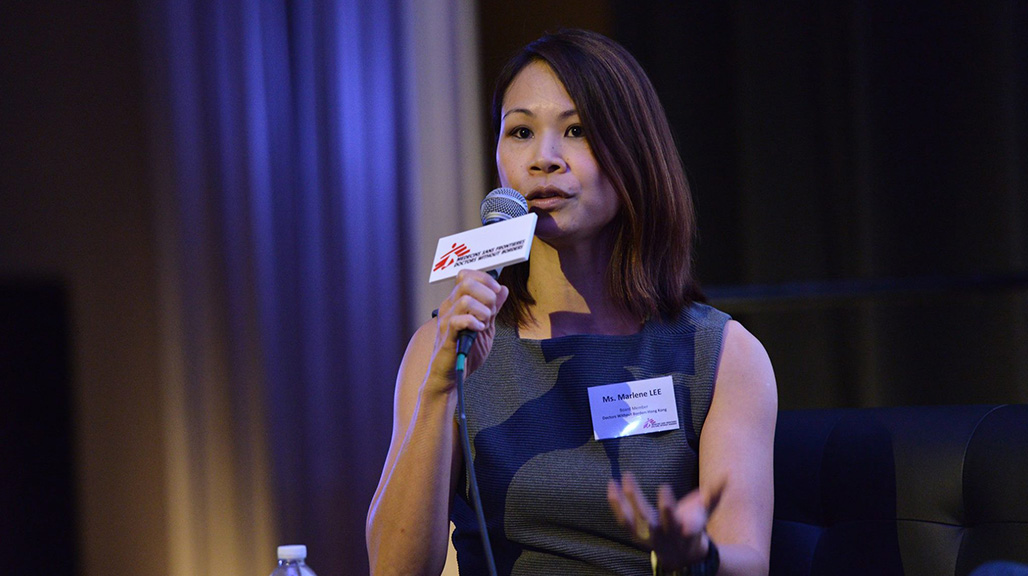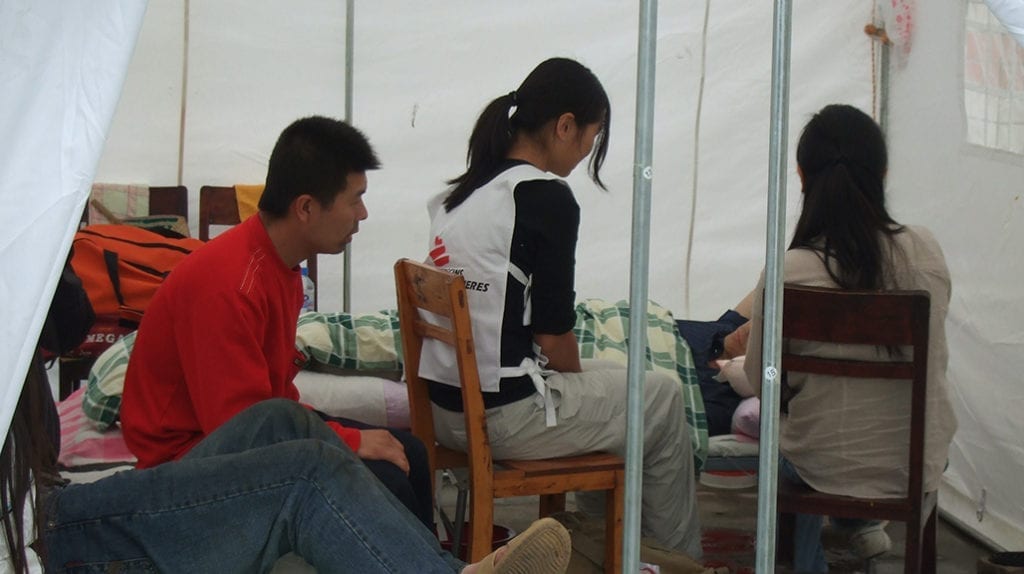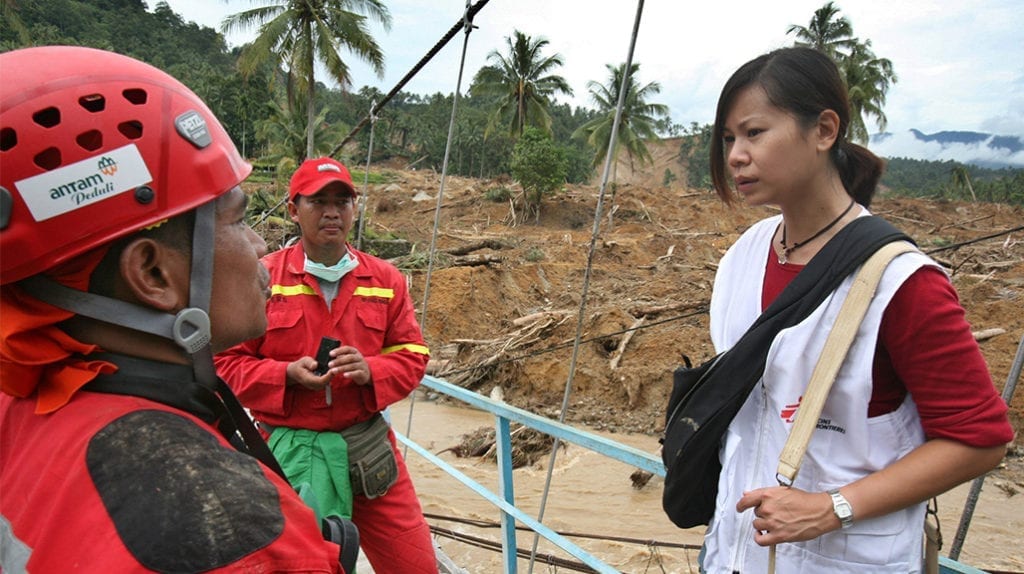A Day in the Life of a Woman Clinical Psychologist
 Contributed by
Dr. Marlene Lee
July 10, 2018
Contributed by
Dr. Marlene Lee
July 10, 2018

This clinical psychologist aspires to make mental health services more accessible to local communities and people from all walks of life. From 2007 to 2009, she took time off from academe to pursue humanitarian aid work. She became a full-time volunteer for Doctors Without Borders/Médecins Sans Frontières (MSF), an international medical-humanitarian NGO that delivers emergency aid to people affected by armed conflict, epidemics, natural disasters and exclusion from healthcare.
Titled “A Day In The Life Of A Woman,” this series celebrates the women in our lives. From the everyday to inspirational, the series aims to highlight women from various fields and share a bit of the diversity we experience every day.
Dr Marlene Lee is a member of the Board of Directors of Médecins Sans Frontières (MSF) Hong Kong. She is trained as a clinical psychologist and currently sees clients in her psychotherapy private practice. Dr. Lee specializes in the assessment and treatment of mood and anxiety disorders, addictive behaviors, and trauma, and works primarily with adults and adolescents.
What she enjoys most about her job is the sense of satisfaction that comes about from making a difference in someone’s life. Let’s take a sneak peek at how a typical day goes for Dr. Marlene Lee.
7am – The alarm goes off! A quick shower before I head to the kitchen to make breakfast.
8am – Check my work email and reply to phone messages. Then I prepare for my psychotherapy cases.
9.30am – Head out to the bus stop. My meeting this morning is with a corporate client. I’m being brought on board for a psychology consultancy and we need to finalize the specifics. After the meeting, I brisk walk to the nearby MRT station.
11am – I arrive at the office to see my psychotherapy clients. I work primarily with individuals – adults and teenagers – who are mainly struggling with depression and anxiety issues.
1pm – I have a quick bite at my desk. Time to review documents for the MSF board meeting this evening. I also check my work e-mail and return calls to potential clients enquiring about services.

1.30pm – Resume psychotherapy sessions. A young client is extremely distressed and reveals that she has plans to take her own life. I make a call to her parents to inform them about the safety plan and the need for hospitalization. Then I call the client’s psychiatrist to update him and he arranges for an admission. I finish the call just in time for my next psychotherapy session.
5pm – My colleagues (fellow private practitioners) arrive at my office for our monthly peer supervision session.
6.30pm – We wrap up the session and I head home on the MRT, stopping along the way for dinner.
7.30pm – I arrive home and dial-in for my MSF board meeting on Skype Business.
10pm – Board meeting ends. I jump into the shower and get ready for bed. My two cats make themselves comfy on my feet whilst I catch up with the news online and read a few pages from my book.
11pm – Lights out!

A Career for a Cause
In 2010, I started my psychotherapy private practice after spending two and a half years as a volunteer field psychologist with Médecins Sans Frontières (MSF). Back then, there was a dearth of local (Singaporean/PR) clinical psychologists offering their services, so access to psychological assessment and treatment was limited for the general population. I figured that starting my own practice would help fill part of that gap.
Advice for Aspiring Psychotherapists
Starting a solo private practice can be quite intimidating for early career clinical psychologists. However, it can afford many benefits such as flexibility in time and diversity in scope of work. In the initial stages, it is crucial to build a referral network (i.e., other health professionals who can refer clients to you) and to keep overhead expenses low. Room rental and advertising will comprise the biggest portion of your costs, so think about starting small and growing only when you have a steady client flow.
Also, consider different avenues to supplement your income, for instance, teaching, providing training, or taking on a research consultancy. It takes time to build a practice.
Dr. Lee Shares Her Productivity Hack
As a solo private practitioner, I am a one-woman show; I do everything scheduling my client appointments to managing my practice website/online advertising to my own bookkeeping. So effective time-management is highly essential! I find it helpful to set time-limits when I’m carrying out a task (for e.g., only allocating X number minutes to write a referral letter) as it helps me be more productive.
Additionally, I only to reply e-mails at one go at a designated hour instead of replying individual e-mail as they come in. I try to apply this principle (i.e., grouping similar tasks) to things that I need to get done; it saves time and helps me stay focused. To minimize disruptions when I’m at work, I don’t log into my social media accounts or browse the internet. I also keep my work phone on silent mode and only check my messages at allocated times.
If Dr. Lee’s cause is also your cause, make a difference today. As Médecins Sans Frontières (MSF) has not yet been registered in Singapore; if you live in Singapore or Philippines and wish to donate to MSF, please do so via its Hong Kong regional office.
Did Dr. Marlene Lee’s “Day in the life” inspire you? Interested in sending your “Day in the life” story? Join the Connected Women community now!










Sorry, the comment form is closed at this time.